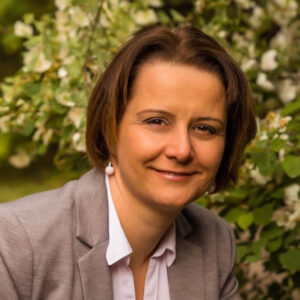Advent Devotional | Day 12: Jesus as the Treasured Word
Jézus az az Ige, aki az igazi kincs
Blessed are those whose ways are blameless, who walk according to the law of the Lord
– Psalm 119:1
Our culture loves stories. Today, ideas about good and evil and the directions to happiness are wrapped into songs, movies, and film series. In a post-communist culture, like Hungary has, questioning God’s existence and His revelation is the norm. Our global postmodern, or rather meta-modern, culture suggests that only resistance to the rules and orders can lead us to our true selves, to our supposedly authentic identity. However, the result of this guidance and advice of our culture is dehumanizing and actually robs us of life. In contrast to these stories, God’s words and testimonies are not only for directing, motivating, and encouraging but, because they are true, good, righteous, and sure, they are lifegiving and bring radical transformation. They can make even the simplest wise, having more understanding than all the teachers (Psalm 119:99). They can turn us into salt (Matthew 5:13–14) and light (Philippians 2:15).
The author of Psalm 119 reveals how he is not perfect and the world he lives in is not perfect either, just like our experience with ourselves and our circumstances. He knows brokenness from inside as his soul melts away from sorrow (Psalm 119:28), as he feels like a lost sheep (Psalm 119:176), and as his soul clings to the dust making him feel lifeless amid the struggle (Psalm 119:25).
He also experiences brokenness from outside as he suffers from affliction (Psalm 119:107) and others’ wickedness (Psalm 119:95). However, he still sees himself as someone who is made and fashioned by God’s hands (Psalm 119:73), who is a sojourner on the earth (Psalm 119:19) and a servant of God (Psalm 119:125), and who confesses from his heart: “I am yours” (Psalm 119:94).
God’s words and God’s law are something to which this man fully relates: with his cognitive capacity (observes, thinks of, meditates on, seeks to understand), with his affective abilities (rejoices, delights in, longs for, loves, trusts, hopes in, clings to), and with his actions (keeps, does, turns his feet to, walks in, lives according to). His concern and prayer is that he would not turn away, not forget, and not delay to keep God’s commandments. This approach reminds us of Jesus’ command: love the Lord your God with all your heart and all your soul and all your mind (Matthew 22:37).
This psalm is about God’s law, rules, and statutes. How is it that they do not restrict our freedom but rather give an essential order to life in which we can freely, confidently live? How is it that as they show what is straight and right, they uphold us and revive our souls? Instead of rebelling against the commandments, how is it that this song shows that our heart can long for them and that their guidance and direction is delightful and desirable (Psalm 119:35, 131)? How can it be that precepts, which at first sound cold and distant, actually warm the human heart so the psalmist says he loves them (Psalm 119:159)? The answer lies in the fact that they are God’s words, laws, rules, statutes, testimonies, commandments, and precepts. They show God’s heart, what God values, and what is dear to Him. They show what it looks like when love is at work toward God and toward neighbours. And ultimately there is a mysterious unity between God’s Word and the person of Jesus. The laws and commands all echo one heart and all depict one face: Jesus’ heart and face. And by His Spirit, whoever sees Jesus through His Word—be it among the laws and statutes or in the New Testament gospels—the joy, delight, wonder, and awe will bring that person to the same reaction we see in Psalm 119—singing.
Jesus, the Word of God, became flesh so that He would live a blameless human life, walking in the law of the Lord among us, and give not only His words but His life for us and to us. He gives us, in His covenantal steadfast love, life (Psalm 119:88).

Bori Mikola
Budapest, Hungary
Bori Mikola serves as a chaplain at Károli Gáspár Reformed University in Budapest, Hungary. She also teaches continuing education for pastors and trains youth leaders and lay-leaders.